8 last-gen moments we wish we could forget
Living in infamy
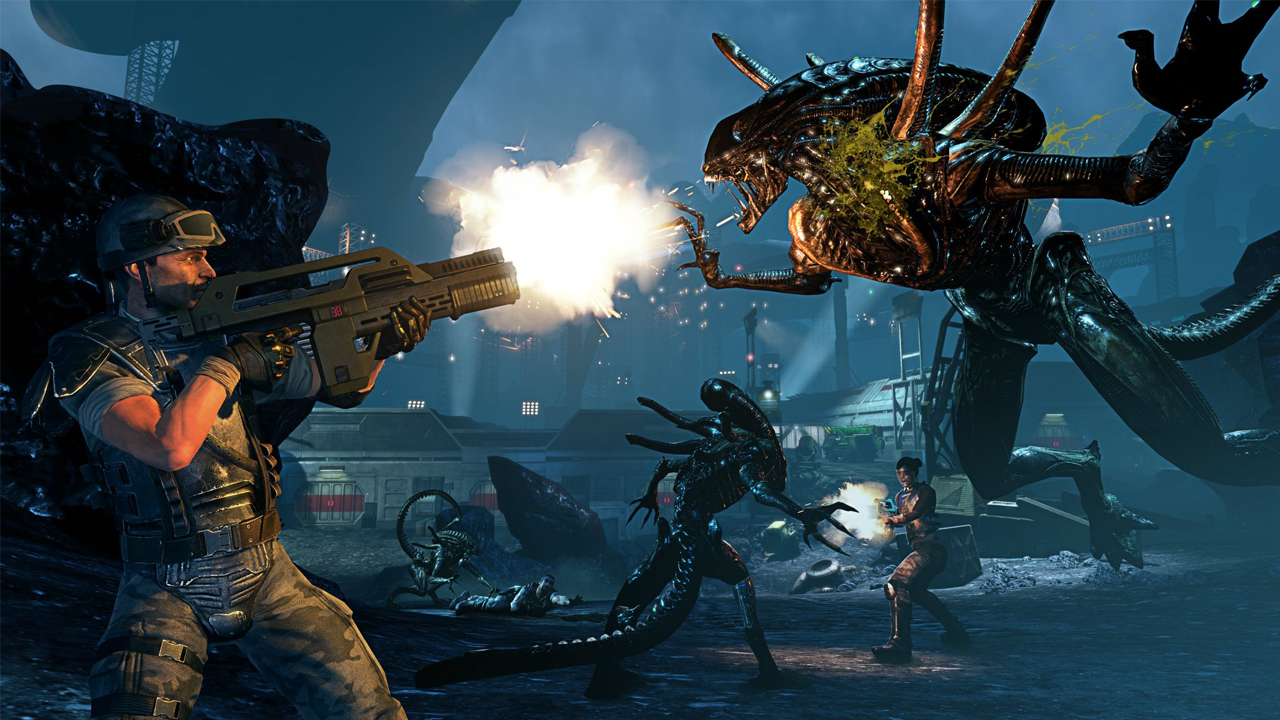
Like some of you, I'm bracing myself for the day that I box up my PS3 and Xbox 360 and shove them in my storage closet. There, they'll remain for all eternity--or, at least until I sell them to a random stranger on Craigslist. Merely thinking about doing so tugs on my heartstrings. These two machines have provided (and continue to provide) me with countless hours of entertainment; they've cemented friendships, kept me company during breakups and sickness alike, and introduced me to dozens of fascinating new worlds. The seventh console generation was a pretty great one--with a few caveats.
A lot of truly wonderful things happened in the gaming space between 2005 and 2013, but that timespan had plenty of downsides too. Some anticipated games utterly failed to meet expectations. Dozens of development studios were shut down. Ride to Hell: Retribution was born into existence, winning our worst game of the year during our anti-awards in 2013. Steel yourself, reader. Ahead are the moments we wish we could forget about the seventh console generation.
The initially high console failure rate
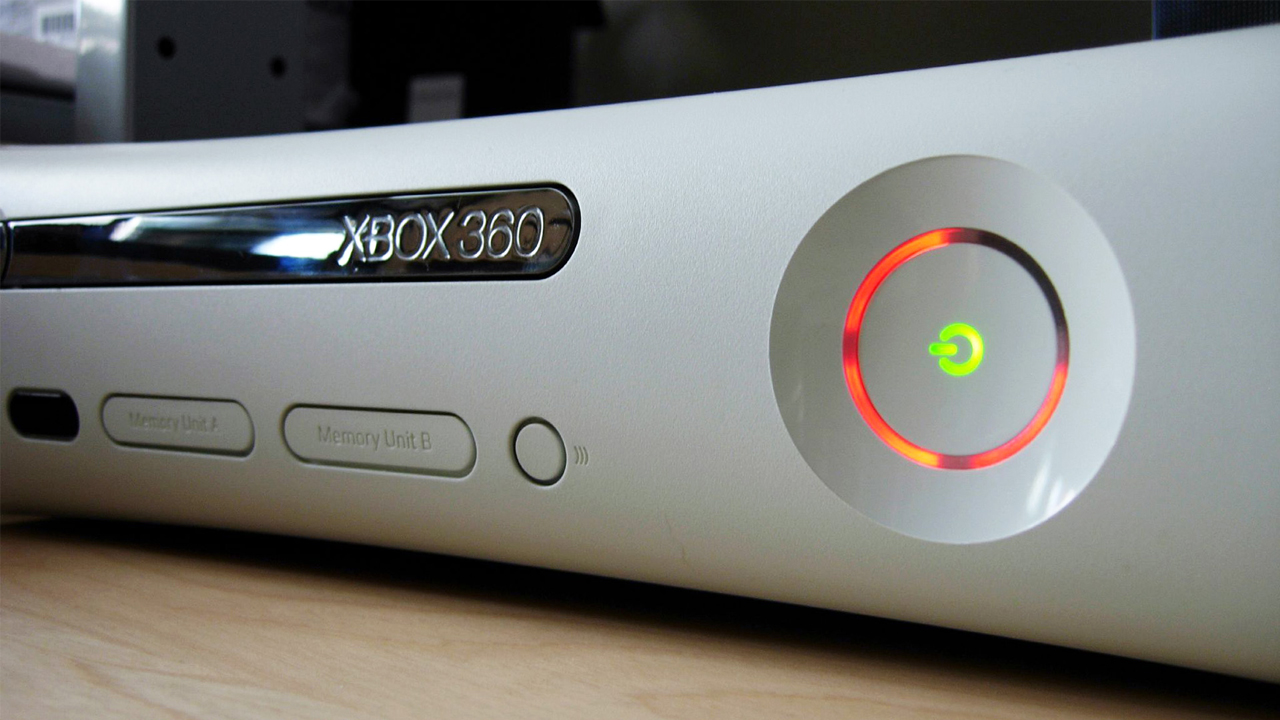
"Yes!" you shout to the heavens as you eagerly sprint home from Best Buy with your new Xbox 360 in hand. Excited, you scream: "I can't wait to play Perfect Dark Zero, it's bound to be an excellent sequel to one of the greatest shooters on the Nintendo 64!" With your 360 unboxed, you slide the disc into that fancy ejecting tray. After an hour of what you're unknowing brain perceives to be pure bliss, the screen on your television turns into a checkerboard of disappointment. You look down at your new console. Three red lights.
Many early adopters of Microsoft's Xbox 360 experienced the infamous red ring of death. Some sources estimated that the failure rate for the 360 was as high as 30 percent--nearly one in three units (I went through three consoles myself). Sony had a similar though far less common hardware hiccup with its yellow light of death, and the Wii? Well, it mostly just destroyed TVs when kids bowled too hard without using the wrist strap.
Sony's 2006 E3 press conference
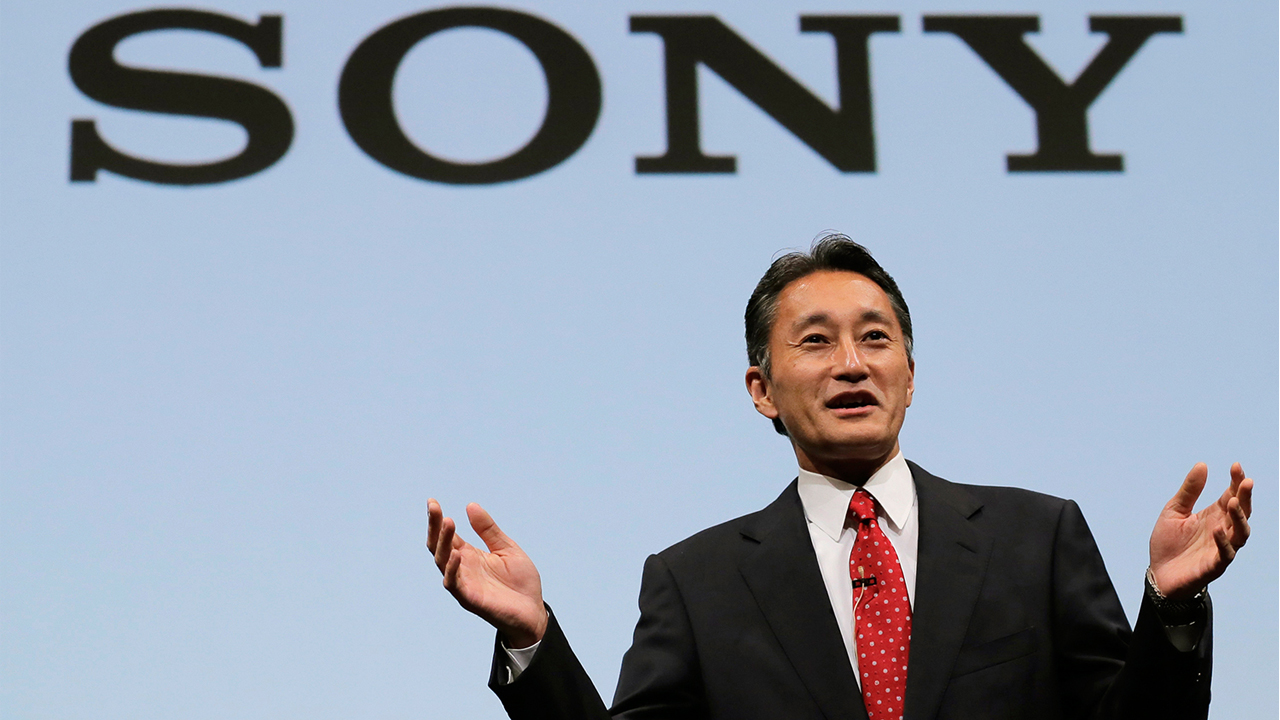
One of the cruelest jokes you can play on another human being is to ask that person to highlight just one cringe-worthy moment during Sony's 2006 E3 press conference. There are just way too many to choose from.
You might initially gravitate toward Kaz Hirai's Riiiiiiidge Racer announcement, meant to stir excitement from a crowd unenthused by a PSP racing game. Or, you could just as easily point to the Genji 2 presentation, during which the dude manning the demo said the game's battles were based on Japan's major historic conflicts. This, of course, happened right before a giant crab backflipped out of the ocean, prompting the demoer to nonchalantly mention its weak point could be stabbed for massive damage. Finally, there was the arrogance that laced the PS3's astronomical $600 price tag. This was a machine for serious gamers, it was implied, and if you couldn't afford it, well, you just didn't' want it bad enough.
The closure of LucasArts
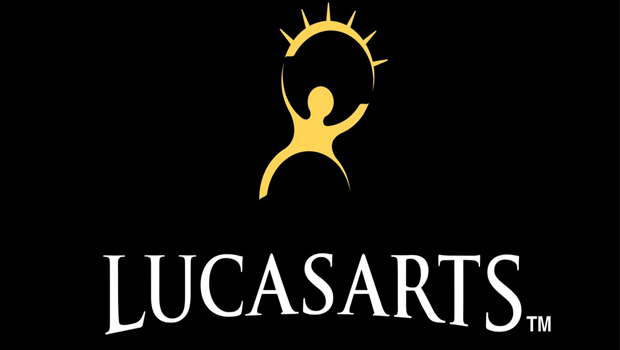
From Midway to Hudson Soft, we lost a lot of game studios during the seventh console generation. And while the loss of any creative developer is a tragedy, few will be as sorely missed as LucasArts.
Weekly digests, tales from the communities you love, and more
You might fondly recall LucasArts' point-'n-click adventure games from the '90s; perhaps you were super into its (occasionally) decent Star Wars titles. And maybe, just maybe, your tear ducts start acting up when you go to the LucasArts website and see that it's still active. Truly the gods are cruel. Our only hope now is that Disney lets other developers make licensed Star Wars games--oh wait, it already is.
THQ's bankruptcy

It's one thing to hear of developers closing their doors--but seeing a publisher as storied as THQ shut down is a whole different matter entirely. In its final years, it published loads of great franchises, including Vigil's Darksiders series, 4A Games' Metro shooters, and Volition's outrageously wacky Saints Row open-world games. Then, in 2012, THQ declared bankruptcy. Why? Gosh. Darn. uDraw (among other ill-advised investments).
It was a tumultuous event, one that lead to a lot of confusion surrounding THQ's properties. Not only were hundreds to lose their jobs, but it also meant several beloved game franchises could've potentially disappeared into the ether. Most of those properties were auctioned off to other publishers; some were ignored and left to die. And the once-mighty THQ was no more.
The PSN hacking fiasco

As we blaze forward into the digital future, we must be ever wary of online security. Few events made this as clear as 2011's PlayStation Network outage, during which the personal details of 77 million users were stolen, making it one of the largest data breaches in history. Of course, while this was already bad news for Sony's lagging online service, what really pissed off consumers was Sony's hesitance to announce the severity of the cyber attack.
The attacks took place between April 17 and 19, leading to a nearly month-long outage of Sony's online service--meaning, no Portal 2 online co-op if you were playing it on a PS3. But it wasn't until April 26 that the publisher finally let its users know that, by the way, whoever did this knows your name, age, address, and credit card information. The outrage that ensued was justifiable, to be sure, but (thankfully) Sony was able to eventually recover.
Duke Nukem Forever's (not so) triumphant return
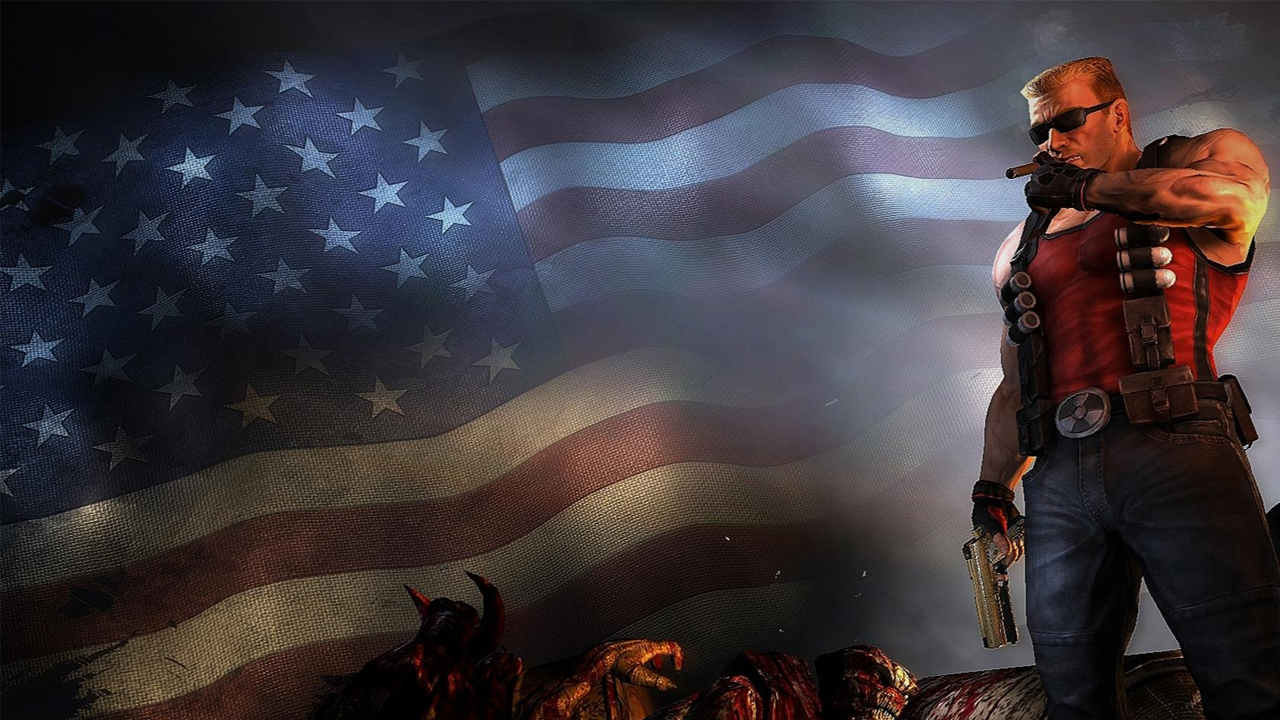
Fifteen years. In approximately the same amount of time it took Wolfgang Amadeus Mozart to compose numerous of pieces of timeless classical music, Duke Nukem Forever transformed from a concept to the world's stinkiest turd reincarnated in the form of a playable disc. If you're one of the many whose rose-tinted glasses forcibly removed $60 from your wallet, I can say only this: bummer.
There's no one company to blame for DNF's end-state--after all, the game jumped from developer to developer for a decade and a half, each tearing apart and rebuilding what another had started. In the end, clunky controls, uninspired level design, and offensive misogynistic jokes served as the foundation of a game that probably should've been permanently delayed.
The 38 Studios scandal
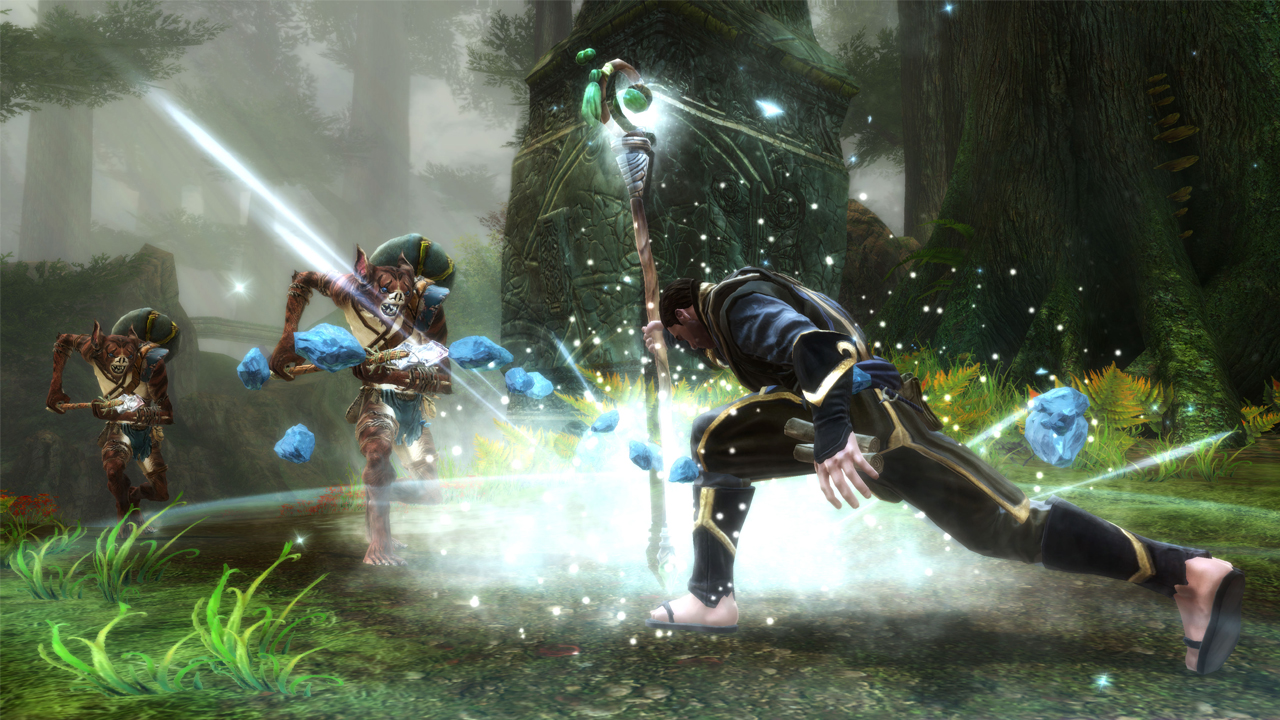
Imagine you're a professional baseball player nearing the end of your career. You've got a bit of cash to your name. You're super into video games. What's your next move? Why, launch a game development company, of course! Such is the story of 38 Studios, formed by ex-MLB player Curt Schilling. You might know it as the development house that went on to create the quite wonderful Kingdoms of Amalur: Reckoning. Rhode Island's Economic Development Corporation, however, knows it as the studio that accepted a $75 million loan a year or so before it went bankrupt. Whoops.
See, despite Reckoning's moderate success, Schilling had been simultaneously working on an MMO set in the Amalur universe. Turns out, MMOs cost a lot of money to make--and it's also quite expensive to relocate more than 100 people from Massachusetts to Rhode Island, which was required before his company could accept the aforementioned loan from the state. In less than two years, 38 Studios defaulted on its loan payment; a week later, all of its employees were notified via email that they were no longer employed. Naturally, Rhode Island filed a lawsuit against Schilling, which still hasn't been resolved.
EA voted the most hated company in America two years in a row
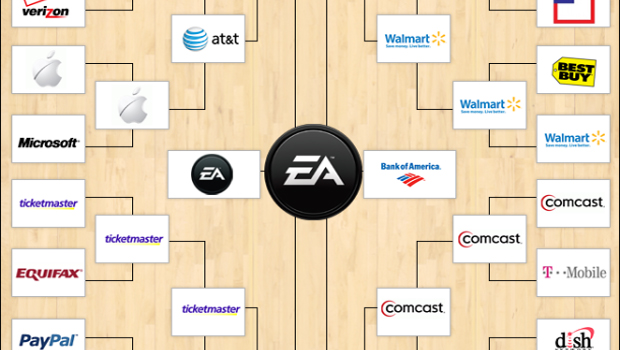
Pop quiz: How do you win the oft-sought honors of "worst company in America" two years in a row?
A) Steer the country into a devastating economic collapse, the likes of which hasn't been seen since the Great Depression.
B) Spill 210 million gallons of oil into the Gulf of Mexico.
C) Get caught spying on the entire country's population.
D) Make a video game.
As discovered by Consumerist.com, a site that creates a yearly March Madness-style tournament bracket for just such an award, the answer is D: Make a video game. Indeed, EA learned the hard way that the destruction of Earth's natural resources and a crippled economy mean naught to gamers who feel slighted by a video game publisher. In EA's defense: Come on, really? Face, meet palm.
JAAAAASON
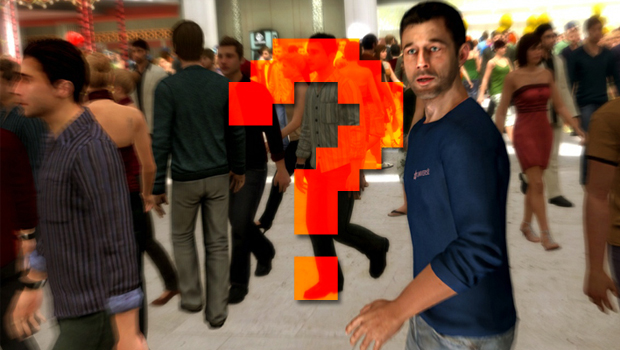
And if you're looking for more, check out 8 sure ways to tell a boss fight is coming and 12 games that make you feel guilty for doing exactly what they told you to do.
Ryan was once the Executive Editor of GamesRadar, before moving into the world of games development. He worked as a Brand Manager at EA, and then at Bethesda Softworks, before moving to 2K. He briefly went back to EA and is now the Director of Global Marketing Strategy at 2K.



